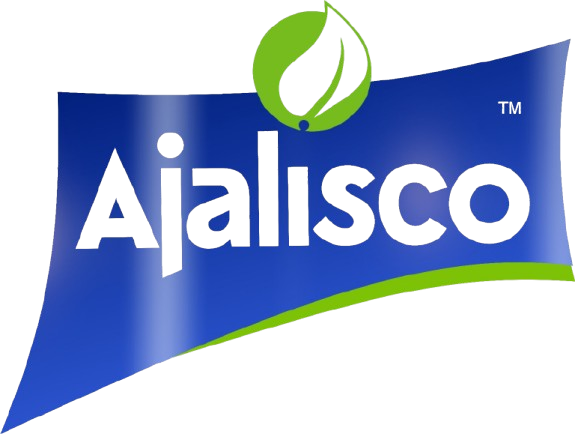When it comes to snacking smart, few options rival peanuts. At Ajalisco Production Industries, our Jalix Peanuts are crafted to deliver maximum flavor and nutrition—whether you prefer them roasted or raw. But which form packs the greatest health punch? In this deep dive, we’ll explore the nutritional differences between roasted and raw nuts, highlight the unique advantages of each, and explain why Jalix Peanuts are your best choice for quality, safety, and taste.
1. Nutrient Profiles: Raw vs. Roasted Nuts
- Raw Peanuts
- Macronutrients: Roughly 25 g protein, 50 g healthy fats, and 16 g carbs per 100 g serving.
- Micronutrients: High in vitamin E, B‑vitamins (especially niacin and folate), magnesium, phosphorus, and potassium.
- Antioxidants: Naturally rich in polyphenols and resveratrol, which combat oxidative stress.
- Roasted Peanuts
- Heat‑driven chemical changes lightly reduce some heat‑sensitive vitamins (e.g., B‑vitamin losses up to 20 %) but typically leave minerals and protein largely intact.
- Maillard reaction produces delicious flavor compounds and may increase antioxidant availability in some cases.
- Bioavailability: Roasting can break down certain antinutrients (like phytic acid), improving overall mineral absorption.
Key takeaway: Both raw and roasted peanuts offer ample protein, healthy monounsaturated and polyunsaturated fats, and essential minerals. Roasting may slightly diminish select vitamins but can enhance flavor and nutrient bioavailability.
2. Digestibility & Antinutrients
Peanuts naturally contain phytic acid, which can bind minerals and reduce absorption. Here’s how each form handles it:
- Raw Peanuts
- Higher phytic acid levels, which can marginally inhibit mineral uptake (iron, zinc, magnesium).
- Some people experience mild digestive discomfort due to intact enzyme inhibitors.
- Roasted Peanuts
- Reduced phytic acid: Dry‑heat roasting significantly lowers phytic acid, making minerals more bioavailable.
- Improved digestibility: Roasting denatures enzyme inhibitors, aiding easier digestion and nutrient absorption.
For those with sensitive stomachs or mineral‑deficiency concerns, lightly roasted Jalix Peanuts may be the gentler, more efficient choice.
3. Flavor & Satiety
- Raw Nuts
- Offer a clean, earthy taste that pairs well with fresh salads or homemade nut butters.
- Chewing raw nuts requires more effort, which can help you eat more mindfully and feel full.
- Roasted Nuts
- Enhanced flavor: The Maillard reaction creates rich, nutty aromatics that heighten enjoyment.
- Satiety boost: Studies show that the crunchy, savory notes of roasted nuts can increase meal satisfaction and curb overeating later.
At Jalix, we use controlled roasting processes to unlock aroma without over‑toasting, ensuring your taste buds—and your waistline—are both happy.
4. Heart Health & Healthy Fats
Peanuts are celebrated for their monounsaturated fats (MUFA) and polyunsaturated fats (PUFA)—key players in cardiovascular wellness.
- MUFA (Oleic Acid)
- Helps lower “bad” LDL cholesterol and supports “good” HDL levels.
- PUFA (Linoleic & Alpha‑Linolenic Acid)
- Essential fatty acids that reduce inflammation and support brain health.
Both raw and roasted peanuts deliver these heart‑friendly fats. However, dry‑roasting (vs. oil‑roasting) preserves the natural fat profile, avoiding added trans fats or excess calories. Jalix Peanuts are always dry‑roasted in high‑efficiency ovens, locking in good fats without unwanted oils.
5. Safety & Quality Controls at Ajalisco
At Ajalisco Production Industries, we go beyond generic standards:
- Premium Sourcing: We partner with local Abia State farmers to procure high‑grade, disease‑free peanut kernels.
- Rigorous Cleaning: Every batch passes through advanced de‑stoning and optical sorting to eliminate debris.
- Controlled Roasting: Temperature‑monitored ovens ensure even roasting without scorching—maximizing nutrients and flavor.
- Laboratory Testing: Our in‑house lab conducts microbial, aflatoxin, and moisture analyses on every lot.
- NAFDAC & ISO Compliance: Jalix Peanuts bear the official NAFDAC registration and are produced in an ISO 22000 certified facility.
These steps guarantee that each crunchy handful is as safe and nutritious as it is delicious.
6. Usage Tips & Culinary Inspiration
- Snacking: Keep a jar of raw Jalix Peanuts on your desk for a mid‑afternoon protein boost.
- Cooking: Add roasted peanuts to stir‑fries, salads, or as a crunchy topping for yam porridge.
- Nut Butter: Blend raw nuts with a drizzle of olive oil and a pinch of salt for a simple, heart‑healthy spread.
- Desserts: Chop roasted peanuts to sprinkle over ice cream or incorporate into brittle for a sweet‑savory treat.
These versatile nuts elevate both sweet and savory dishes while fulfilling your nutritional needs.
7. Conclusion: Which Should You Choose?
- Choose Raw if you’re seeking maximum vitamin retention, crisp texture, and DIY nut butter bases.
- Choose Roasted if you crave bold flavor, improved mineral absorption, and ultimate snack satisfaction.
With Jalix Peanuts, you don’t have to compromise. Our dual‑offering of raw and dry‑roasted options ensures you get the exact taste profile and health benefits you desire—backed by industry‑leading quality controls and local Nigerian craftsmanship.
